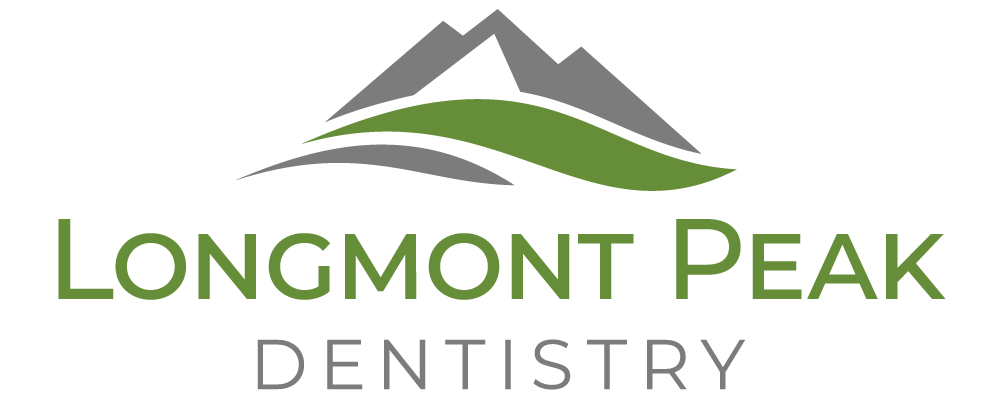Extractions
Extractions
At Longmont Peak Dentistry, Dr. Pinkner and his caring team strives to deliver the best possible oral health results for you and your family. While we do everything possible to save your natural teeth, the best way to preserve oral health, in some cases, is to extract a tooth. Prior to recommending a tooth extraction, Dr. Pinkner will make every possible effort to restore teeth that are worn, broken, cracked, abscessed, or decayed by placing crowns, fillings, or other dental restorations. But in order to restore oral health, a heavily damaged or unsalvageable tooth may be better off removed from your mouth.
If periodontal disease has caused severe bone loss around the teeth, Dr. Pinkner may recommend extractions to improve your overall oral health. Periodontal Disease, also known as Gum Disease, is an infection of the bones and tissues that surround and support the teeth causing loosening of the teeth making it sometimes necessary to remove a tooth. Infections are often a good reason for a tooth extraction. Dr. Pinkner will recommend extraction if the infection is too severe for antibiotics or Root Canal Therapy (RCT) to cure it.

What To Expect
When having an extraction, Dr. Pinkner will numb your teeth, gums, and jaw to provide a comfortable procedure. Dr. Pinkner takes a conservative approach to preserve the integrity of surrounding teeth and tissues. Using dental surgery instruments, Dr. Pinkner will remove the tooth from the bone socket. Sometimes an extraction requires that we section the tooth to remove it in portions if this approach is better for your oral health. When your extraction is complete, we will suture the area and provide instructions on how to care for your extraction site at home over the next couple of weeks. New bone and gum tissue will begin to grow in, however, having a missing tooth can cause the surrounding teeth to shift and affect your bite. Dr. Pinkner will discuss with you your options for replacing an extracted tooth once the area has healed.
Recovery
A typical recovery period in 1-2 weeks. The recovery following a tooth extraction is very important to your healing process. If your tooth was abscessed or infected, Dr. Pinkner may prescribe antibiotics for you to take after your extraction. You may notice some swelling in your face or jaw, which can be relieved with cold compresses. It is critical that you avoid drinking through a straw, smoking, or spitting while your extraction site heals. Doing so could lead to a condition known as dry socket, which is when the clot forming over the bone becomes dislodged. If you have any severe pain, uncontrolled bleeding, or other concerning symptoms, please contact our office right away.
